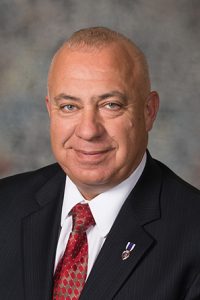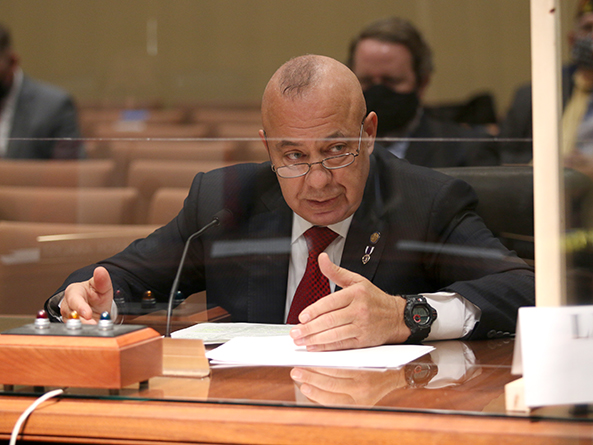Full tax exclusion for military retirement income proposed
Nebraskans could exclude all of their military retirement benefit pay from state income tax under a bill heard Jan. 29 by the Revenue Committee.
Sen. Tom Brewer of Gordon, who introduced LB387 at the request of Gov. Pete Ricketts, said the bill would expand an exclusion the Legislature approved last year.
Beginning in taxable year 2022, individuals may exclude 50 percent of their military retirement benefit income to the extent it is included in federal adjusted gross income. LB387 would allow individuals to exclude 100 percent of that income.
The state Department of Revenue estimates that the bill would reduce state income tax revenue by approximately $13 million in fiscal year 2022-23, $13.7 million in FY23-24 and $14.4 million in FY24-25.
Brewer said the change would make Nebraska more attractive to military retirees, many of whom go on to second careers in the private sector. Any tax revenue loss would be offset by the economic benefits of retaining those highly trained and skilled workers, he said.
“The income tax exemption is not only an obvious way of expressing gratitude to our armed forces and veterans,” Brewer said. “This bill helps us keep pace with our neighbors and stop missing out on opportunities to attract these outstanding groups of individuals to grow and enrich Nebraska.”
Additionally, he said, the change would show the U.S. government that Nebraska is a military-friendly state as it determines the future of Offutt Air Force Base and the location of the new U.S. Space Command headquarters.
The governor testified in support of the bill. He said five of the six surrounding states do not tax military retirement pay, including Iowa and South Dakota, which have seen their military retiree populations grow at a much faster rate than Nebraska’s.
Bryan Slone, president of the Nebraska Chamber of Commerce and Industry, also testified in support. He said LB387 would help Nebraska address an acute skilled labor shortage, which he called the state’s greatest economic challenge of the decade.
“There’s no greater and more important group of skilled personnel and future community leaders that we need to attract and retain to this state than our military personnel when they return to private life,” Slone said.
No one testified in opposition to the bill and the committee took no immediate action on it.


